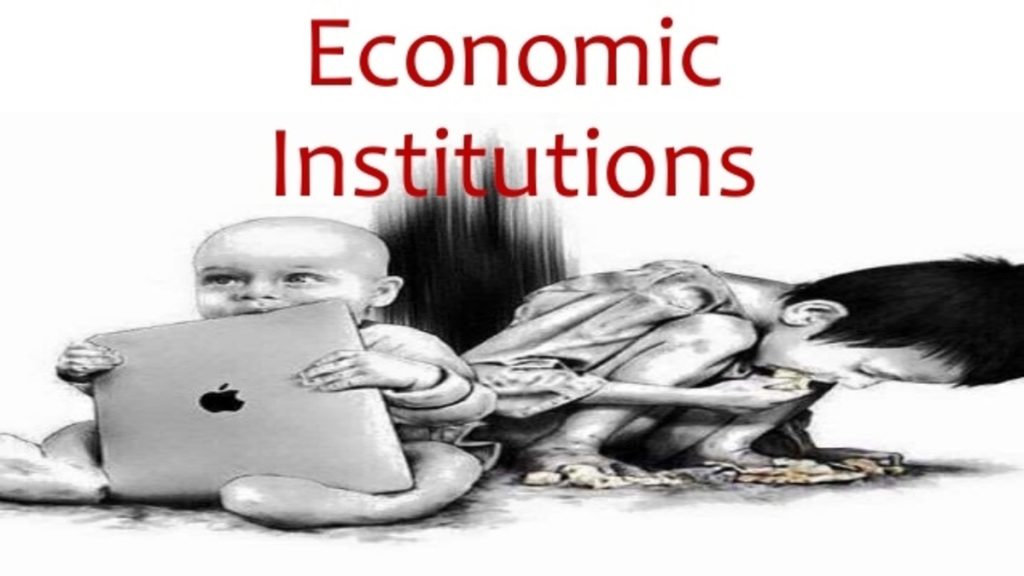Economics Institutions defined
The term ‘economic institutions’ is usually used for socially sanctioned such concepts and structures which men have developed in the process of satisfying their material needs. Economic institutions provide basic physical subsistence for society and meet needs for food, shelter, clothing and other necessities of life.
These institutions include production agriculture and industry and the distribution, exchange and consumption of commodities, goods and services necessary for human survival. Secondary economic institutions are credit and banking system, advertising, co-operatives, etc.
In detail, these institutions are studied by the science of economics. Economists study the internal workings of economic system—production, distribution, supply and demand and consumption of goods, taxation, borrowing, saving and spending, and so on.
Functions of Economic Institutions
Following are the functions of economic institution which include
- Social stratification,
- Power and authority,
- Interdependence of other Institutions,
- Needs satisfaction,
- Employment,
- Division of Labor and
- Provision of funds.
1. Social Stratification
In capitalist system, there is uneven distribution of resources among people, which create many social classes in society. Individuals in society belong to different classes such as upper, middle and lower class. They can move upward or downward on the social ladder, for instance, if lower class people get access to more resources they move upwards on the social ladder and may become middle class or upper class. And if the resources of upper class diminish they will move downwards and may become middle class or lower class.
2. Power and Authority
Those who have access and possess more economic resources they are powerful and authoritative in society. Wealth and economic resources are the source of power in society, the holder of wealth can control various agencies of society.
3. Interdependence of other Institutions
Survival of economic institution depends on the cooperation with other institution. Labor force work in different industries which comes from the institution of family and without labor it is impossible to produce. Technical and managerial staff comes from the educational institution. The role of sociologist initiate when workers go on strike and industries get closed. Government formulate rules and regulations for businesses and business owners have to follow those rules. Therefore, cooperation with other institution is mandatory for economic institution.
4. Needs Satisfaction
In modern world, our basic needs have enormously increased. We need industrial and agricultural goods and services to survive in modern world. Economic institutions are obligated to satisfy those needs.
5. Employment
Economic institution creates jobs opportunities for people through which, they can generate income and earn their livelihood. That’s how people in the society satisfy their basic needs. Many businesses are developed under the economic institution.
6. Division of Labor
Economic institution creates jobs for the people who acquire different skill sets. The roles and responsibilities of employee depend on their skills.
7. Provisions of Funds
Economic institution provides economic assistance to other institutions as well. It provides funds to government in the shape of taxes and to the family in the shape of salaries.
OTHER RELATED POSTS
